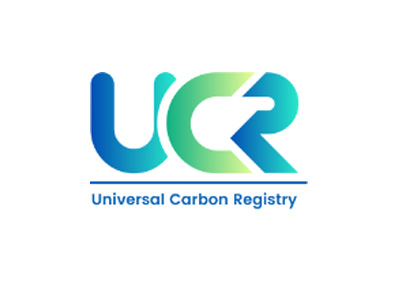
Thai Carbon Exchange - Driving Thailand's Sustainable Future
At the heart of Thai Carbon Exchange's mission is a steadfast commitment to catalysing Thailand's transition towards a more sustainable and eco-friendly future. Through our multifaceted approach, we are dedicated to harnessing the power of renewable energy, pioneering large-scale reforestation efforts, and enabling a robust carbon trading ecosystem.
Promoting Clean Energy Generation: We are spearheading the development and expansion of renewable energy projects across Thailand, with a focus on solar, wind, and hydropower. By reducing the country's reliance on fossil fuels, we aim to significantly lower carbon emissions and pave the way for a greener energy landscape.
Supporting Reforestation and Afforestation: Recognizing the vital role that forests play in carbon sequestration, we are implementing extensive reforestation and afforestation programs to restore degraded lands and expand Thailand's diverse forest coverage. These initiatives not only capture atmospheric CO2, but also revitalize local ecosystems and habitats.
Enabling Carbon Trading and Certification: At the core of our mission is the creation of a robust and transparent carbon trading platform, where businesses and individuals can invest in verified emissions reduction projects and earn tradable carbon credits. Our rigorous verification and certification processes ensure the integrity and impact of these projects.
Educating and Advocating for Sustainability: Alongside our practical initiatives, we are dedicated to raising awareness about climate change, promoting sustainable practices, and advocating for the critical role of carbon trading in mitigating the global environmental crisis. Through our educational outreach and collaborative efforts, we aim to inspire and empower individuals and organizations to join us in creating a more sustainable future for Thailand and the world.
Renewable Energy Generation
Thailand's exchange is rapidly expanding the country's renewable energy capacity through solar and wind projects, harnessing abundant natural resources.
Large-Scale Reforestation
The exchange's reforestation program is restoring degraded lands, revitalizing biodiversity, and capturing millions of tons of CO2 from the atmosphere.
Carbon Credit Opportunities
Companies can invest in verified emissions reduction projects, earning tradable carbon credits that demonstrate their commitment to sustainability.

Harnessing Thailand's Renewable Energy Potential
Thailand is blessed with abundant natural resources, including vast forests and diverse renewable energy sources. We are committed to harnessing this potential to drive sustainable development and combat climate change.
Harnessing Thailand's Renewable Energy Potential
Thailand's Carbon Credit Exchange is spearheading an ambitious renewable energy program that taps into the country's abundant natural resources. Through strategic investments in large-scale solar and wind projects, the exchange is rapidly expanding Thailand's clean energy capacity and generation.
The solar component of the program focuses on deploying state-of-the-art photovoltaic technology across Thailand's sun-drenched landscapes. By harnessing the country's plentiful sunshine, these solar farms generate clean, renewable electricity that is seamlessly integrated into the national grid.
Complementing the solar initiative, the exchange also oversees the construction of high-efficiency wind turbines in Thailand's coastal regions. Optimally situated to capture the powerful sea breezes, these wind farms further diversify the country's renewable energy portfolio and help it make substantial progress towards its ambitious clean energy targets.
Reforestation and Afforestation Program
Thailand's lush tropical forests are some of the most biodiverse ecosystems in the world, serving as crucial carbon sinks and habitats for endangered species. The Carbon Credit Exchange is dedicated to protecting these invaluable natural resources through a comprehensive conservation program.
In regions where deforestation has occurred, the exchange is leading large-scale reforestation and afforestation efforts. By replanting native tree species, the program is restoring degraded lands, revitalizing biodiversity, and capturing millions of tons of CO2 from the atmosphere.
Through the carbon credit exchange, companies and individuals can invest in sustainable forestry management practices. This includes implementing selective logging, replanting harvested areas, and protecting sensitive ecosystems - all while generating verified emissions reductions that can be traded as carbon credits.
Thailand's Diverse Forest Landscape
Conservation Forests
Managed by the Department of National Parks, Wildlife and Plant Conservation (DNP), these forests consist of National Parks, Wildlife Sanctuaries, and other conserved forest classifications.
National Reserve Forests
Managed by the Royal Forest Department (RFD), these forests consist of forest lands that were historically subjected to active forest management activities.
Mangrove Forests
Managed by the Department of Marine and Coastal Resources (DMCR), these forests are found along the country's coastline and are an important habitat for marine life.
Conservation Forests
16.40 million hectares (38.4% of total forest area)
National Reserve Forests
1.04 million hectares (2.5% of total forest area)
Mangrove Forests
0.28 million hectares (0.7% of total forest area)
Economic Forests
4.28 million hectares (10.5% of total forest area)
Thailand's forest area has remained relatively stable over the years, with a slight increase in forest cover between 2014-2019. The country aims to increase the forest area available for economic development by up to 15% before 2036.
You can explore the state of forests in Thailand using the Thailand Interactive Forest Map & Tree Cover Change Data, which provides satellite data and information on deforestation rates, forest fires, forest communities, biodiversity, and more.
Note: The exact boundaries and classifications of Thailand's forests may vary depending on the source and methodology used.

Rigorous Carbon Credit Verification and Certification
The Carbon Credit Exchange employs a meticulous, multi-step verification system to ensure the credibility and integrity of each carbon credit. Project activities are thoroughly examined, emissions reductions are quantified using standardized methodologies, and all documentation is rigorously audited.
All carbon credits issued through the exchange are certified to adhere to internationally recognized standards such as the Verified Carbon Standard (VCS) and the Gold Standard. This alignment enhances the value and acceptance of the credits in global carbon markets.
The exchange works closely with accredited auditors and certifiers to provide an additional layer of impartial review. These independent experts validate the emission reduction activities, ensure compliance with protocol requirements, and issue final certification.
The exchange maintains continuous monitoring and reporting processes to track the sustained impact of its carbon projects. This allows for timely adjustments and improvements to ensure the long-term viability and environmental integrity of the carbon credits.
Benefits for Businesses and Individuals
Sustainability Credentials
Businesses can leverage the Carbon Credit Exchange to enhance their sustainability credentials, demonstrating their commitment to environmental stewardship and reducing their carbon footprint.
Offset Emissions
Companies can purchase carbon credits to offset their unavoidable emissions, helping them achieve their climate action goals and meet regulatory requirements.
Financial Returns
Individuals and organizations can invest in the exchange's renewable energy and reforestation projects, generating financial returns while contributing to a greener future.
Personal Carbon Offset
Concerned citizens can also purchase carbon credits to offset their own carbon emissions, making a tangible difference in the fight against climate change.
Partnerships and Collaborations
Government Partnerships
The Carbon Credit Exchange works closely with the Thai government and various regulatory bodies to align its initiatives with national climate and environmental policies.
Global Collaborations
The exchange actively engages with international organizations and carbon markets to foster cross-border cooperation and facilitate the trading of carbon credits worldwide.
Local Stakeholder Engagement
The exchange prioritizes working with local communities, ensuring their involvement and supporting the development of sustainable livelihoods.
Research and Innovation
Partnerships with academic institutions and research centers help the exchange stay at the forefront of carbon market developments and climate solutions.
Environmental Impact and Sustainability
The Carbon Credit Exchange is deeply committed to ensuring the long-term sustainability and positive environmental impact of its initiatives. Through rigorous monitoring and evaluation processes, the exchange closely tracks key metrics such as carbon sequestration, biodiversity conservation, and community development to validate the sustained success of its projects.
At the heart of the exchange's sustainability efforts is a focus on promoting environmentally-responsible practices across Thailand. This includes encouraging sustainable land use and forest management, supporting the widespread adoption of renewable energy sources, fostering circular economy principles to reduce waste, and empowering local communities to become active stewards of their natural resources.
The Carbon Credit Exchange's programs are closely aligned with the United Nations Sustainable Development Goals, enabling it to contribute directly to Thailand's broader efforts to address climate change, protect critical ecosystems, and drive inclusive economic growth. By working in partnership with government agencies, global organizations, and local stakeholders, the exchange is uniquely positioned to drive meaningful and lasting positive change throughout the region.
Measuring and Monitoring Our Impact
The Carbon Credit Exchange employs rigorous monitoring and evaluation processes to track the environmental and social impacts of its projects. This includes regularly assessing carbon sequestration, biodiversity conservation, and community development metrics to ensure the long-term sustainability of its initiatives.
Promoting Sustainable Practices
- Encouraging sustainable land use and forest management
- Supporting the transition to renewable energy sources
- Fostering circular economy principles and waste reduction
- Empowering local communities to become environmental stewards
Aligning with Global Sustainability Goals
The Carbon Credit Exchange's programs are closely aligned with the United Nations Sustainable Development Goals, contributing to Thailand's broader efforts to address climate change, protect natural resources, and promote inclusive economic growth.
How to Participate in the Exchange
1
Register
Visit the Carbon Credit Exchange website and complete the registration process to gain access to the platform.
2
Explore Opportunities
Browse the available renewable energy and reforestation projects, and learn about the carbon credit investment options.
3
Invest or Purchase
Depending on your goals, you can either invest in the exchange's initiatives or purchase carbon credits to offset your emissions.
4
Monitor and Participate
Actively track the progress of your investments or carbon credit usage, and stay engaged with the exchange's ongoing sustainability efforts.

THAI CARBON EXCHANGE LLC
Glsa Haus Bldg .,9 Fl .,
Sukhumvit 25 Rd.,
Watthana, Bangkok, 🇹🇭
Thailand
10110









